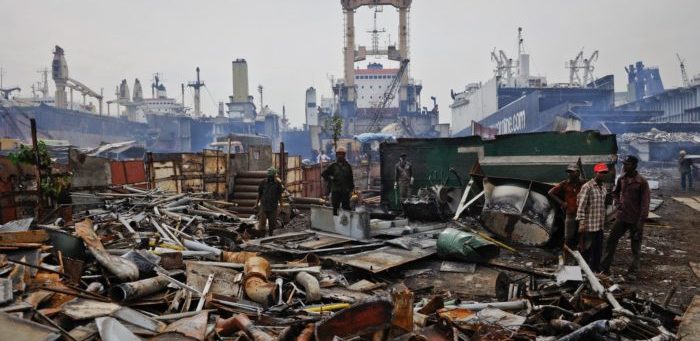The ethics watchdog of Norway’s $1-trillion sovereign wealth fund, the largest in the world, will focus this year on Indian shipbreaking, which is known for unsafe working practices putting lives at risk and polluting the environment. The fund’s Council of Ethics checks that companies the fund invests in meet these ethical standards.
The aim of the oil fund is to ensure responsible and long-term management of revenue from Norway’s oil and gas resources in the North Sea so that this wealth benefits both current and future generations. Norway’s fund already excluded four firms in 2018 because they scrap ships on beaches in Bangladesh and Pakistan.
A record-breaking 90,4% of the gross tonnage dismantled globally in 2018 occurred on tidal mudflats in Bangladesh, India and Pakistan, according to NGO Shipbreaking Platform.
Indian shipbreaking has been for a long time criticized over illegal beaching of ships polluting sea and land and killing shipbreaking workers. In 2018, at least 14 out of a total of 34 workers died in Alang, India’s largest ship recycling facility, making 2018 one of one of the worse years for Indian yards in terms of accident records in the last decade.
We look at whether there is a systemic, or gross, violation of human rights or damage to the environment,
…Johan H. Andresen, chair of the Council on Ethics, told Reuters, on the occasion of the fund’s annual report release this week.






























































